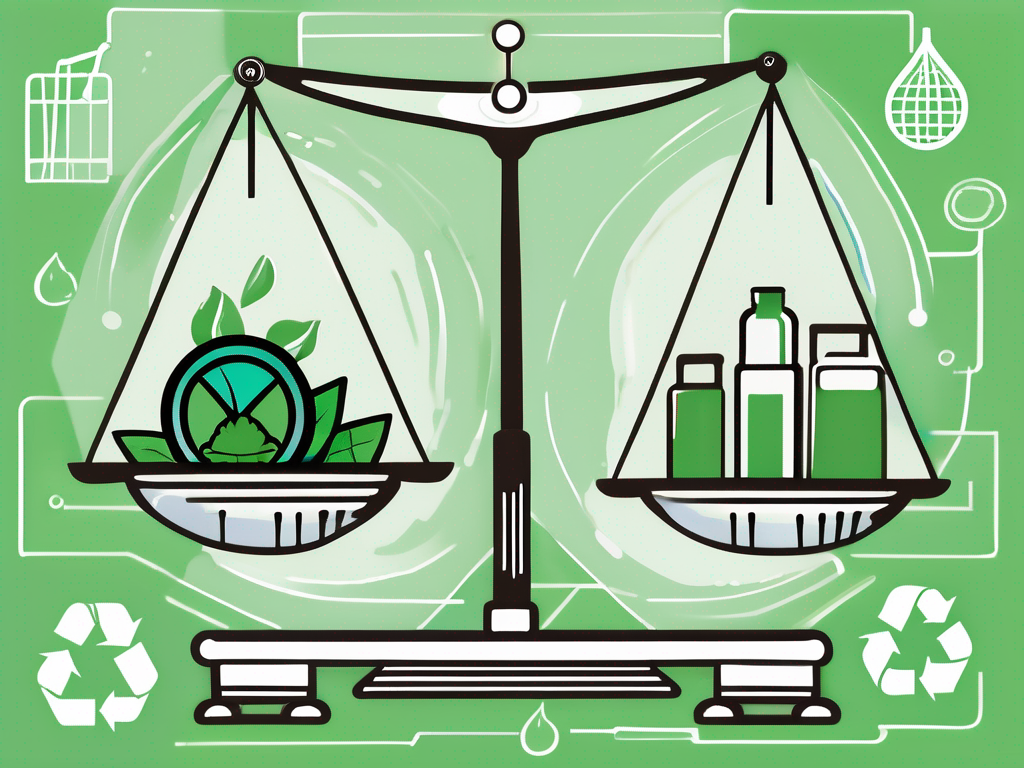.svg)
The Role of ESG in Shaping Consumer Preferences
.svg)

In recent years, Environmental, Social, and Governance (ESG) criteria have emerged as pivotal factors influencing consumer behaviour. As the world becomes increasingly aware of the impact of business operations on the environment and society, consumers are making more informed choices. This shift is not merely a trend but a profound change in how people perceive value and make purchasing decisions. Understanding the role of ESG in shaping consumer preferences is crucial for businesses aiming to thrive in this new landscape.
Understanding ESG: A Brief Overview
ESG stands for Environmental, Social, and Governance, which are the three central factors used to measure the sustainability and societal impact of an investment in a company or business. These criteria help determine the future financial performance of companies, particularly in terms of ethical impact and sustainability practices.
The environmental component examines how a company performs as a steward of nature. This includes a company’s energy use, waste, pollution, natural resource conservation, and treatment of animals. The social aspect looks at how the company manages relationships with employees, suppliers, customers, and the communities where it operates. Governance deals with a company’s leadership, executive pay, audits, internal controls, and shareholder rights.
As consumers become more conscious of these factors, they increasingly expect transparency and responsibility from the brands they support. This shift in consumer expectations is driving companies to integrate ESG considerations into their business models.
How ESG Influences Consumer Preferences
Environmental Concerns
Environmental issues such as climate change, pollution, and resource depletion have become significant concerns for consumers. As awareness grows, people are more inclined to support companies that demonstrate a commitment to reducing their environmental footprint. This includes adopting sustainable practices, using renewable energy sources, and reducing waste.
Consumers are increasingly scrutinising the environmental impact of their purchases. They prefer products that are eco-friendly, sustainably sourced, and have minimal packaging. Brands that can communicate their environmental initiatives effectively often gain a competitive advantage, as they align with the values of environmentally conscious consumers.
Social Responsibility
Social responsibility is another critical factor shaping consumer preferences. Consumers are more likely to support brands that demonstrate a commitment to social causes, such as fair labour practices, diversity and inclusion, and community engagement. Companies that prioritise employee welfare, support local communities, and engage in ethical sourcing are often viewed more favourably.
Moreover, the rise of social media has amplified the voices of consumers, making it easier for them to hold companies accountable for their social impact. Brands that fail to meet social expectations risk damaging their reputation and losing consumer trust. Conversely, those that excel in social responsibility can build strong, loyal customer bases.
Governance and Ethical Practices
Governance refers to the way a company is run, including its leadership, executive pay, audits, and shareholder rights. Good governance practices are essential for building trust with consumers, as they reflect a company’s commitment to transparency, accountability, and ethical behaviour.
Consumers are increasingly interested in how companies are governed and are more likely to support those with strong governance frameworks. This includes having diverse and independent boards, transparent reporting, and mechanisms to prevent corruption and unethical practices. Companies that prioritise good governance are often seen as more reliable and trustworthy, which can significantly influence consumer preferences.
The Impact of ESG on Brand Loyalty
ESG factors play a crucial role in building brand loyalty. Consumers are more likely to remain loyal to brands that align with their values and demonstrate a commitment to ESG principles. This loyalty is not just about repeat purchases; it also involves advocacy, where consumers actively promote the brand to others.
Brands that effectively communicate their ESG initiatives can create emotional connections with consumers, fostering a sense of shared purpose and community. This connection can lead to increased customer retention and brand advocacy, as consumers feel they are contributing to a greater cause by supporting the brand.
Furthermore, ESG-driven brand loyalty can lead to increased resilience in times of crisis. Consumers who are loyal to a brand for its ESG values are more likely to continue supporting it during challenging times, providing a stable customer base that can help the company weather economic downturns or reputational challenges.
Challenges and Opportunities for Businesses
Challenges in Implementing ESG Practices
While the benefits of integrating ESG practices are clear, businesses often face challenges in implementing them. These challenges can include the cost of transitioning to sustainable practices, the complexity of measuring ESG impact, and the need for organisational change.
Companies may struggle with balancing short-term financial goals with long-term ESG objectives. Additionally, there is often a lack of standardisation in ESG reporting, making it difficult for businesses to benchmark their performance and communicate their efforts effectively to consumers.
Opportunities for Growth and Innovation
Despite these challenges, there are significant opportunities for businesses that embrace ESG principles. Companies that lead in ESG innovation can differentiate themselves in the market, attracting consumers who prioritise sustainability and ethical practices.
Embracing ESG can also drive innovation, as businesses seek new ways to reduce their environmental impact, improve social outcomes, and enhance governance practices. This innovation can lead to the development of new products and services, opening up new markets and revenue streams.
Furthermore, companies that prioritise ESG are often better positioned to attract and retain top talent, as employees increasingly seek to work for organisations that align with their values. This can lead to a more motivated and engaged workforce, driving further business success.
The Future of ESG and Consumer Preferences
The influence of ESG on consumer preferences is expected to grow as awareness and concern for environmental and social issues continue to rise. Consumers are likely to demand even greater transparency and accountability from brands, pushing companies to further integrate ESG considerations into their operations.
As technology advances, consumers will have more access to information about the ESG practices of companies, enabling them to make even more informed purchasing decisions. This increased transparency will likely drive further competition among brands to demonstrate their commitment to ESG principles.
Ultimately, the integration of ESG into consumer preferences represents a significant shift in the business landscape. Companies that can successfully navigate this change and align their values with those of their consumers are likely to thrive in the years to come, building strong, sustainable brands that resonate with the values of the modern consumer.
Related Posts
Let's
Let’s discuss how we can bring reinvigorated value and purpose to your brand.







.svg)